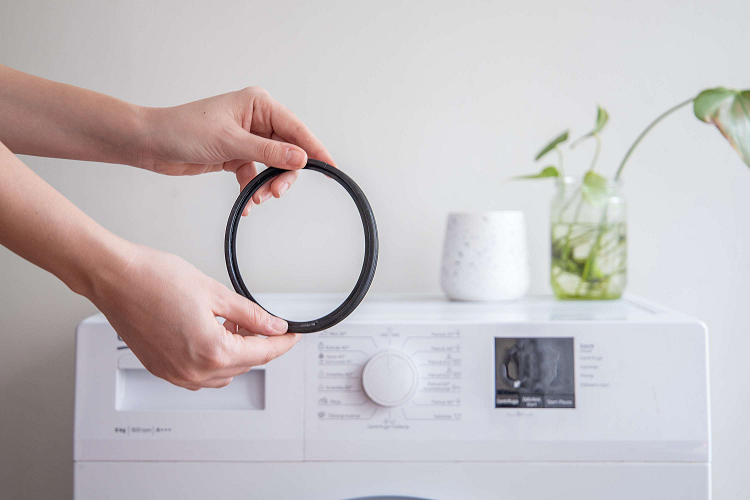Accidents happen. Even when you do your best to prioritize your health, life can throw you an unpleasant curveball. Maybe you cut yourself on an old piece of metal, or that nasal congestion you’ve been ignoring turns out to be something worse than seasonal allergies.
An unexpected trip to the clinic can be costly if you don’t have insurance, and if you are covered, out-of-pocket fees for lab tests and prescription medicine can be just as expensive.
If you’re worried about how, you can afford essential medical care, keep reading. This guide is here to help you explore your options.
Table of Contents
ToggleShould You Take out an Online Loan?
Online loans can act as a failsafe in an emergency when you’re in a tight spot. If approved, you can use your funds to cover the rest of your medical expenses that you can’t pay for on your own.
Online loans are convenient in urgent medical situations because you won’t have to visit a brick-and-mortar location to apply. You can find loans near you over the phone anywhere you get Internet, including a hospital waiting room.
But like any personal loan, borrowing money online comes with rates and fees on top of your principal. That means you’ll be paying more than the flat rate of your doctor’s bill. As a result, most people consider online loans as a safety net only if you’ve exhausted these other options.
Alternatives to Online Loans for Medical Expenses
Search for an Affordable Healthcare Provider
If you aren’t involved in a life-threatening emergency, don’t rush out to the nearest clinic.Go online first to look for community clinics and urgent care centers that provide care on a sliding scale.
Talk to Your Doctor
While in your appointment with the doctor, talk to them about your financial situation. You don’t need to tell them intricate details about your budget, but you should let them know you have a strict spending limit.
Broaching this subject may be awkward at first, but it can help your doctor understand your limits. They may be willing to prescribe you generic drugs in place of costly brand name options, discuss detailed pricing lists of extra tests, or refer you to affordable specialists if you need additional treatment.
Negotiate with the Billing Department
Another way you can keep costs low is by having a separate conversation with the provider’s billing department. Ask them for an itemized medical bill so that you understand exactly why you owe what you do. This gives you an opportunity to check if you’re receiving fair pricing for your treatment.
You should also ask the billing department if there are any fees they’re willing to waive. The worst you’ll hear is “no.”
In all likelihood, the healthcare provider will have some kind of system in place to help their low-income patients. This often works out to be a financing plan that allows you to pay back what you owe over time. However, like online loans, these plans may come with interest and fees, so make sure you read the fine print with this deal.
Once You Get Better, Start Saving
After the dust settles from your medical emergency, it’s time to think about the future. How will you pay for the next doctor’s appointment? Sit down with your budget to find out how you can set aside some money into a Health Savings Account (HSA). This can help you handle your next emergency with less stress.
A Guide to Surprise Medical Expenses You Can’t Afford
Accidents happen. Even when you do your best to prioritize your health, life can throw you an unpleasant curveball. Maybe you cut yourself on an old piece of metal, or that nasal congestion you’ve been ignoring turns out to be something worse than seasonal allergies.
An unexpected trip to the clinic can be costly if you don’t have insurance, and if you are covered, out-of-pocket fees for lab tests and prescription medicine can be just as expensive.
If you’re worried about how, you can afford essential medical care, keep reading. This guide is here to help you explore your options.
Should You Take out an Online Loan?
Online loans can act as a failsafe in an emergency when you’re in a tight spot. If approved, you can use your funds to cover the rest of your medical expenses that you can’t pay for on your own.
Online loans are convenient in urgent medical situations because you won’t have to visit a brick-and-mortar location to apply. You can find loans near you over the phone anywhere you get Internet, including a hospital waiting room.
But like any personal loan, borrowing money online comes with rates and fees on top of your principal. That means you’ll be paying more than the flat rate of your doctor’s bill. As a result, most people consider online loans as a safety net only if you’ve exhausted these other options.
Alternatives to Online Loans for Medical Expenses
Search for an Affordable Healthcare Provider
If you aren’t involved in a life-threatening emergency, don’t rush out to the nearest clinic.Go online first to look for community clinics and urgent care centers that provide care on a sliding scale.
Talk to Your Doctor
While in your appointment with the doctor, talk to them about your financial situation. You don’t need to tell them intricate details about your budget, but you should let them know you have a strict spending limit.
Broaching this subject may be awkward at first, but it can help your doctor understand your limits. They may be willing to prescribe you generic drugs in place of costly brand name options, discuss detailed pricing lists of extra tests, or refer you to affordable specialists if you need additional treatment.
Negotiate with the Billing Department
Another way you can keep costs low is by having a separate conversation with the provider’s billing department. Ask them for an itemized medical bill so that you understand exactly why you owe what you do. This gives you an opportunity to check if you’re receiving fair pricing for your treatment.
You should also ask the billing department if there are any fees they’re willing to waive. The worst you’ll hear is “no.”
In all likelihood, the healthcare provider will have some kind of system in place to help their low-income patients. This often works out to be a financing plan that allows you to pay back what you owe over time. However, like online loans, these plans may come with interest and fees, so make sure you read the fine print with this deal.
Once You Get Better, Start Saving
After the dust settles from your medical emergency, it’s time to think about the future. How will you pay for the next doctor’s appointment? Sit down with your budget to find out how you can set aside some money into a Health Savings Account (HSA). This can help you handle your next emergency with less stress.











